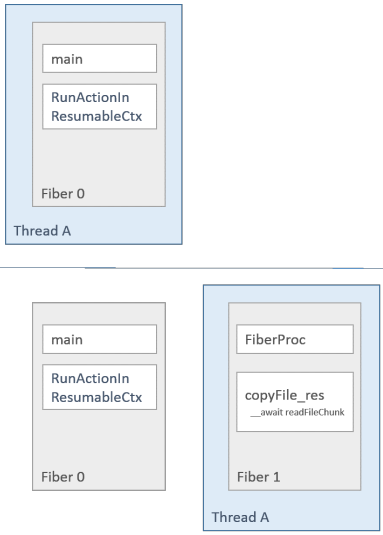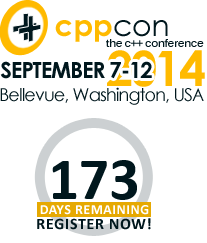Generating OpenCL/CUDA source code from C++ expressions in VexCL
A solution to generate code for CUDA and OpenCL with C++:
Generating OpenCL/CUDA source code from C++ expressions in VexCL
by Denis Demidov
From the talk description:
VexCL is an opensource C++ vector expression template library for OpenCL/CUDA. It has been created for ease of GPGPU development with C++ and provides convenient and intuitive notation for linear algebra operations, vector arithmetic and various parallel primitives.

 The STE||AR Group has released V0.9.9 of HPX -- A general purpose parallel C++ runtime system for applications of any scale.
The STE||AR Group has released V0.9.9 of HPX -- A general purpose parallel C++ runtime system for applications of any scale. Fresh on Kukuruku:
Fresh on Kukuruku: Paris, April 2014: Paolo Severini explores the Async-Await pattern and the related proposal for C++17, showing also an example by using Visual Studio 2013 November CTP.
Paris, April 2014: Paolo Severini explores the Async-Await pattern and the related proposal for C++17, showing also an example by using Visual Studio 2013 November CTP. The STE||AR Group has released V0.9.8 of HPX -- A general purpose parallel C++ runtime system for applications of any scale.
The STE||AR Group has released V0.9.8 of HPX -- A general purpose parallel C++ runtime system for applications of any scale.
